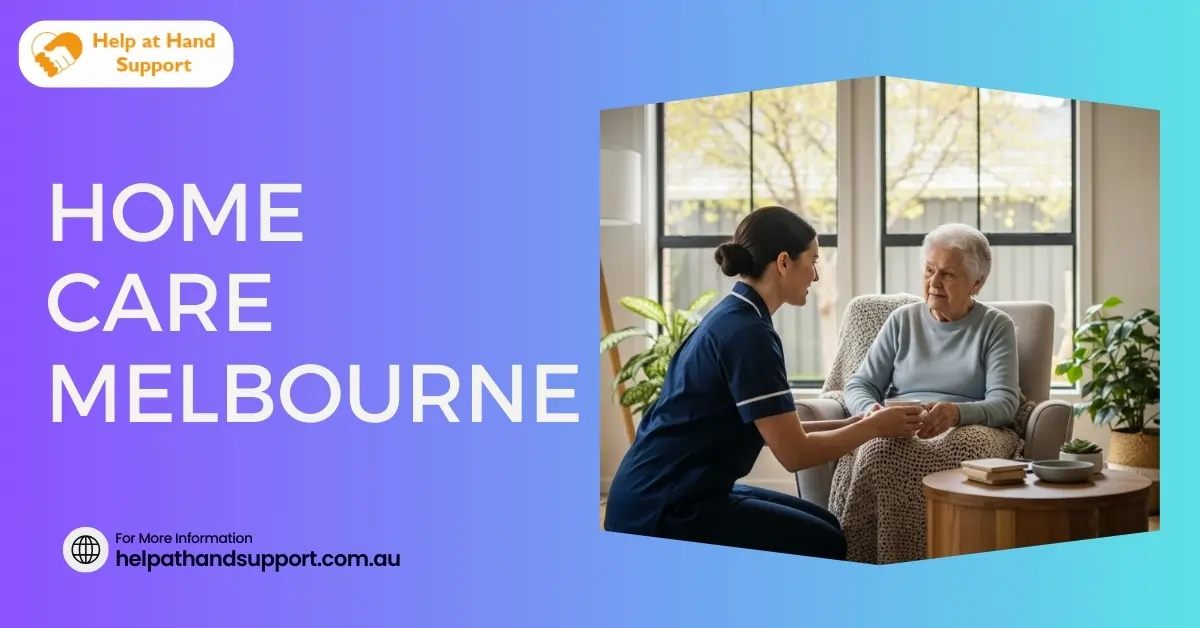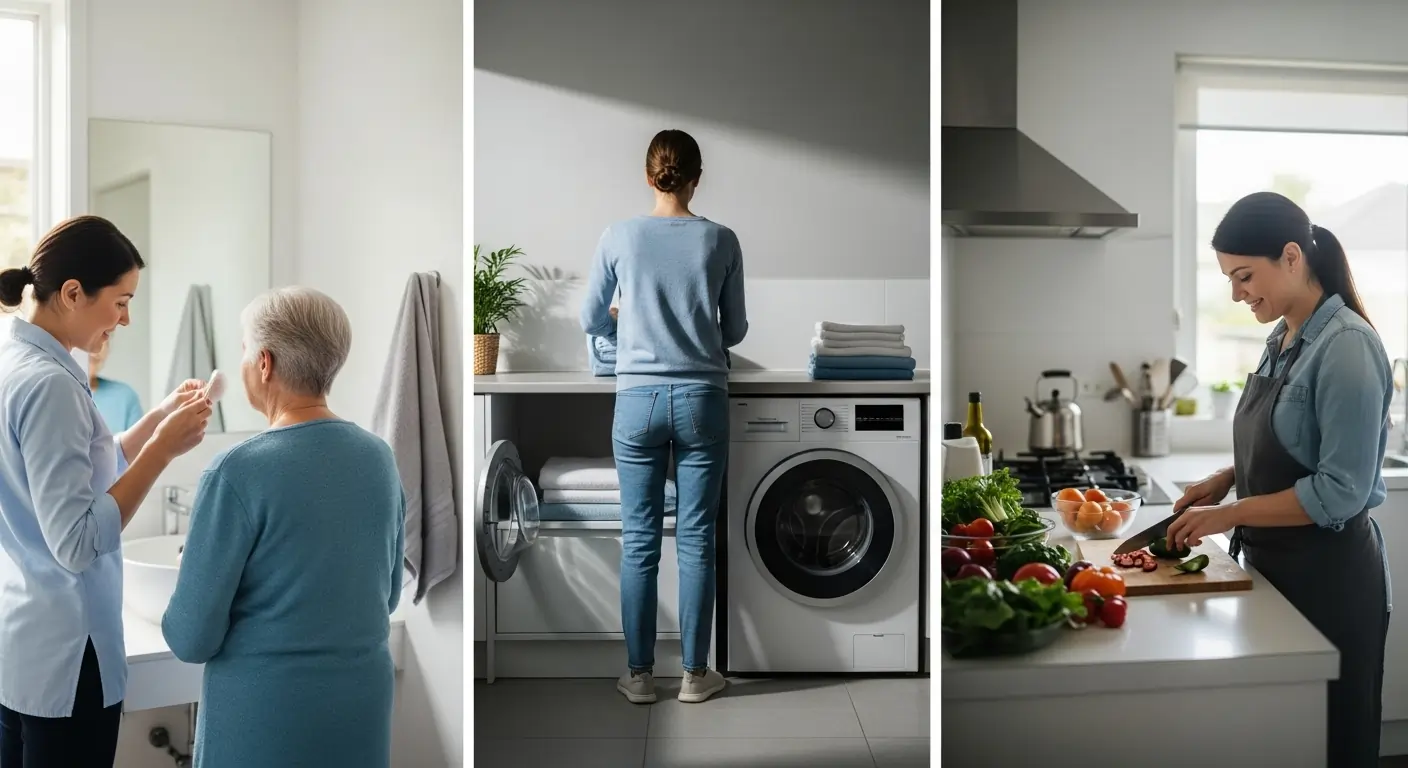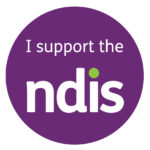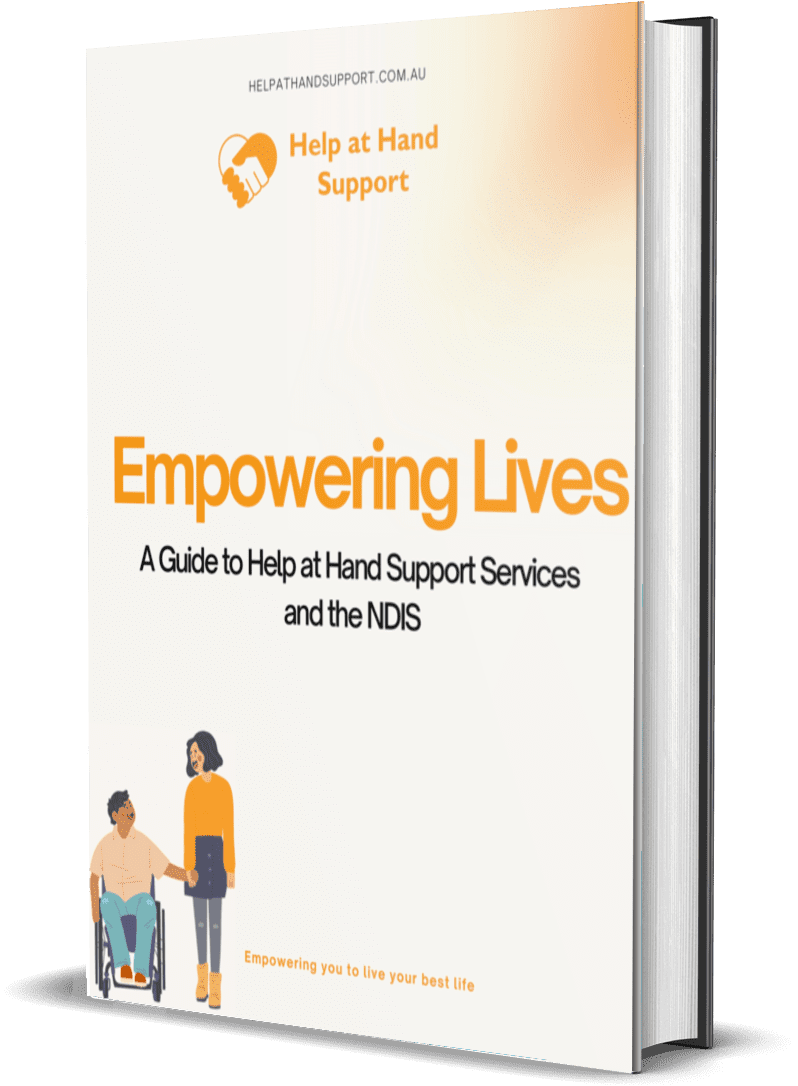Home care in Melbourne provides daily living support that helps seniors and people with disability stay safe, independent, and comfortable in their own homes.
Help at Hand Support delivers tailored services across Melbourne with flexible hours, fast response times, and carers matched to cultural, language, and personal preferences.

What Services are Included in Home Care in Melbourne?
Home care in Melbourne covers personal, domestic, and social support that makes everyday life easier and safer at home.
Help at Hand Support offers a full range of services as listed below.
- Personal care assistance – help with showering, dressing, and grooming.
- Domestic support – household cleaning, laundry, and organisation.
- Meal preparation – fresh, healthy meals made at home.
- Transport – safe trips to appointments, shops, and community activities.
- Companionship – friendly visits, conversation, and emotional support.
- Respite care – short-term care that gives family carers a break.

Who is Eligible for Home Care in Melbourne?
Home care in Melbourne is designed for seniors, people with disability, and families who need extra support at home.
Eligibility includes:
- Seniors aged 65+ who can access care through My Aged Care.
- People under 65 with an NDIS plan requiring daily living assistance.
- Families arranging private care or respite for a loved one.
- Individuals recovering from surgery or illness who need short-term help.

Why Should Families Choose Help at Hand Support for Home Care in Melbourne?
Families in Melbourne choose Help at Hand Support because services are fast, flexible, and delivered by qualified carers you can trust.
Our USPs are listed below.
- Quick starts – services often begin within days, with no waiting list in most suburbs.
- Personalised matching – carers selected by language, gender, and cultural preferences.
- Qualified professionals – all staff are insured, police-checked, and trained.
- Local expertise – carers available across Melbourne’s north, south, east, and west.
- Flexible care plans – from a few hours a week to full daily support.
- Open communication – regular updates and transparent service coordination.

FAQs
1. How quickly can I start home care services in Melbourne?
Most home care services in Melbourne can start within a few days of contacting Help at Hand Support. The team organises an assessment, matches you with the right carer, and begins support without long waiting times.
2. Can I choose my home care worker in Melbourne?
Yes, you can choose a home care worker in Melbourne based on your language, culture, gender, and personal preferences. Help at Hand Support makes sure care feels comfortable and personalised.
3. Is respite care included in Melbourne home care services?
Yes, respite care is included as part of the Melbourne home care package. Families can arrange short-term or ongoing respite to take a break while their loved one receives professional support.
4. Does home care in Melbourne only support older people?
No, home care in Melbourne supports both older people and younger people with disability. Services are available through My Aged Care, the NDIS, or private care plans.
5. What areas of Melbourne are covered by Help at Hand Support?
Help at Hand Support provides home care across all Melbourne suburbs, including the North, South, East, and West. Local carers are available in Preston, Coburg, Box Hill, Dandenong, Werribee, and many more areas.
How does home care in Melbourne connect with day programs?
Many families combine home care services with community-based programs to give their loved ones more opportunities for social connection and structured activities.
While home care focuses on personal support, domestic help, and respite at home, Day Programs in Melbourne provide group activities, skill development, and community access for older adults and people with disability.
Together, these supports create a balanced care plan that promotes independence, reduces isolation, and gives family carers extra peace of mind.


